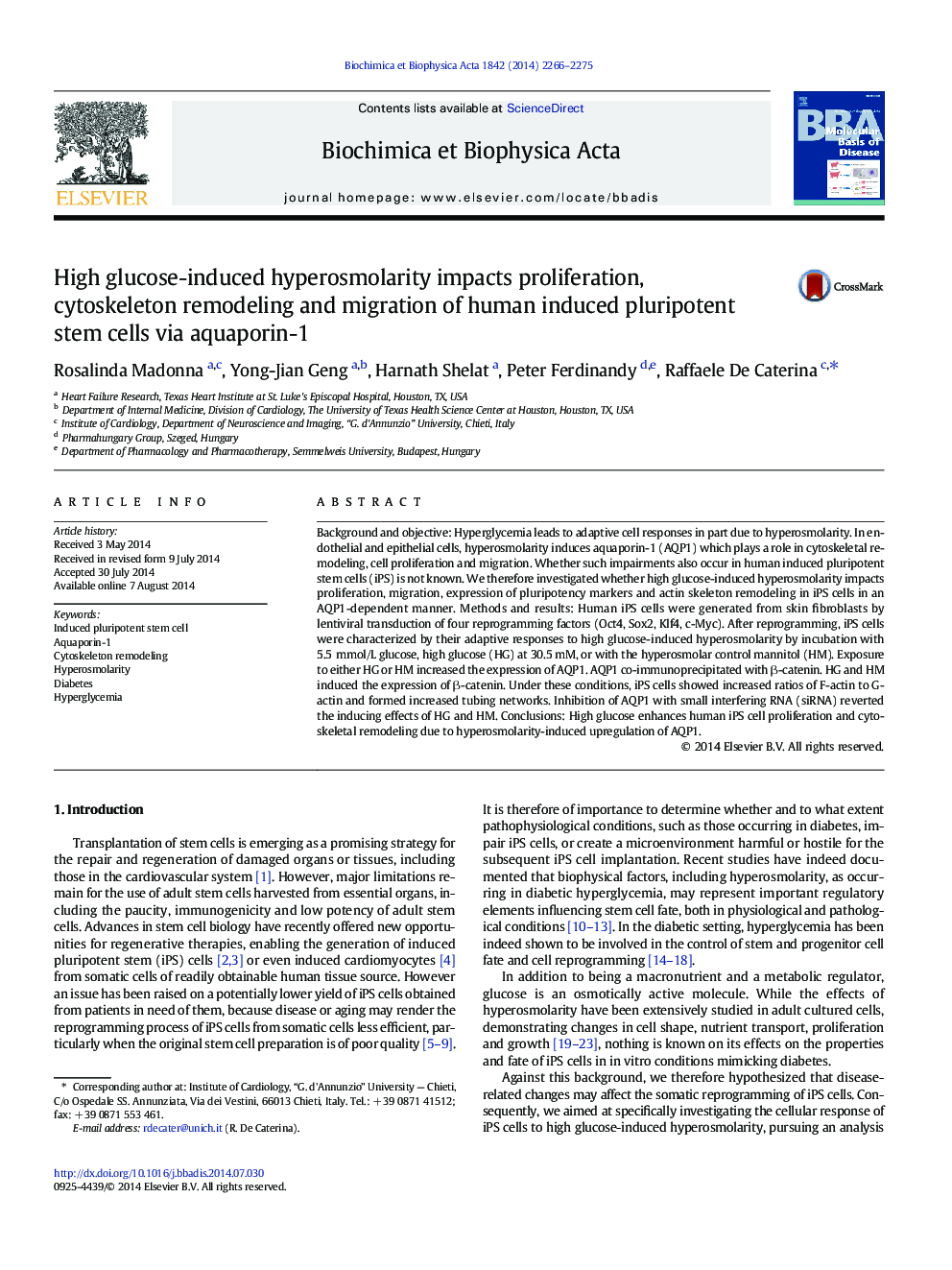| Article ID | Journal | Published Year | Pages | File Type |
|---|---|---|---|---|
| 1904733 | Biochimica et Biophysica Acta (BBA) - Molecular Basis of Disease | 2014 | 10 Pages |
•Hyperglycemia — in part due to hyperosmolarity — leads to cellular changes.•This may also occur in human induced pluripotent stem cells (iPS).•Exposure of iPS to hyperosmolarity increased the expression of aquaporin (AQP)1.•Under hyperosmolarity, iPS cells increase ratios of F-actin to G-actin and formed increased tubing networks.•Inhibition of AQP1 with siRNA reverted the inducing effects of hyperosmolarity.
Background and objective: Hyperglycemia leads to adaptive cell responses in part due to hyperosmolarity. In endothelial and epithelial cells, hyperosmolarity induces aquaporin-1 (AQP1) which plays a role in cytoskeletal remodeling, cell proliferation and migration. Whether such impairments also occur in human induced pluripotent stem cells (iPS) is not known. We therefore investigated whether high glucose-induced hyperosmolarity impacts proliferation, migration, expression of pluripotency markers and actin skeleton remodeling in iPS cells in an AQP1-dependent manner. Methods and results: Human iPS cells were generated from skin fibroblasts by lentiviral transduction of four reprogramming factors (Oct4, Sox2, Klf4, c-Myc). After reprogramming, iPS cells were characterized by their adaptive responses to high glucose-induced hyperosmolarity by incubation with 5.5 mmol/L glucose, high glucose (HG) at 30.5 mM, or with the hyperosmolar control mannitol (HM). Exposure to either HG or HM increased the expression of AQP1. AQP1 co-immunoprecipitated with β-catenin. HG and HM induced the expression of β-catenin. Under these conditions, iPS cells showed increased ratios of F-actin to G-actin and formed increased tubing networks. Inhibition of AQP1 with small interfering RNA (siRNA) reverted the inducing effects of HG and HM. Conclusions: High glucose enhances human iPS cell proliferation and cytoskeletal remodeling due to hyperosmolarity-induced upregulation of AQP1.
